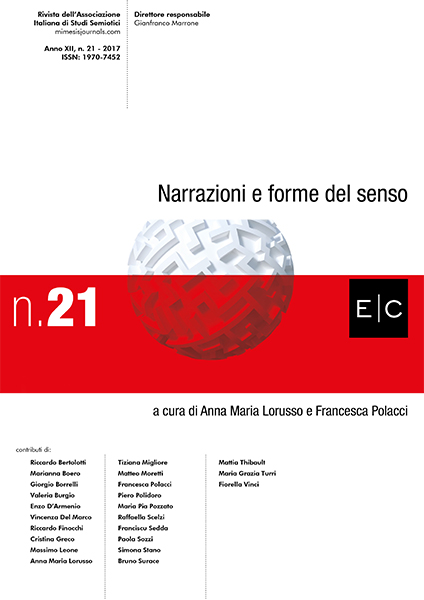Semiotics of Drones
Abstract
The Greimasian semiotic perspective defines the sentient subject’s perception of the world as, first of all, a narratological operation. Thus not only are “canonically” narrative texts (novels, movies, comics, etc) decodified as Stories, but also the places we live in, the clothes we wear, and finally the objects we encounter during our lives. Semiotics has, in fact, devoted a lot of attention to objects and, conversely, drawn advantageous theoretical models from them, such as – unus pro omnibus – that of affordances, which sees the object as a Gestalt of narrative programmes more or less able to narrate certain functions. In this objectual landscape the drone is a pervasive presence. It is an object capable of telling stories (from the most tragic stories related to the war drone and to its double dimension of, on the one hand, scopic device for filming areas and transmitingt their images and, on the other, blasting tool, to more simple stories like those deriving from “domestic” drones utilized for para-cinematographic or advertising purposes), but it is also and above all an object which narrates itself, combining preeminent dimensions, from the toy-ludic one to the primitive and anthropological one related to flying, from the technological one – able to enchant technomaniac audiences – to the proto-panoptic one. The ensemble of possible utilizations intrinsically suggested by the “domestic” drone comprehends a conglomeration of narrative extensions that deserve to be analysed. The investigation of the semionarrative structures conveyed by the drone means a better understanding of the peculiarities of contemporary imaginaries, and this is precisely the objective of this dissertation, interpolating semiotics with onticology, a discipline which sees objects as entities capable of shaping new physical and semiosic itineraries.



